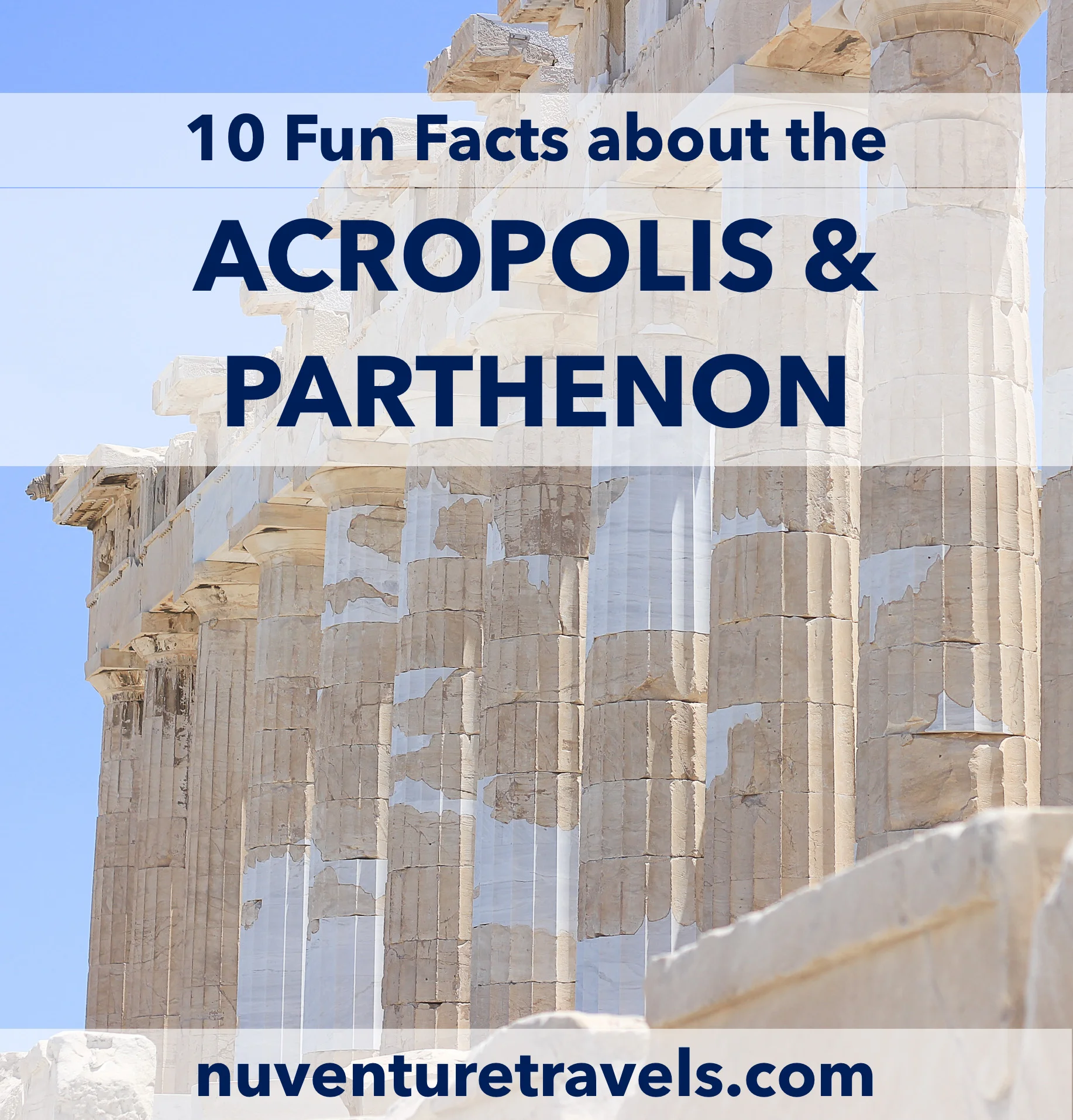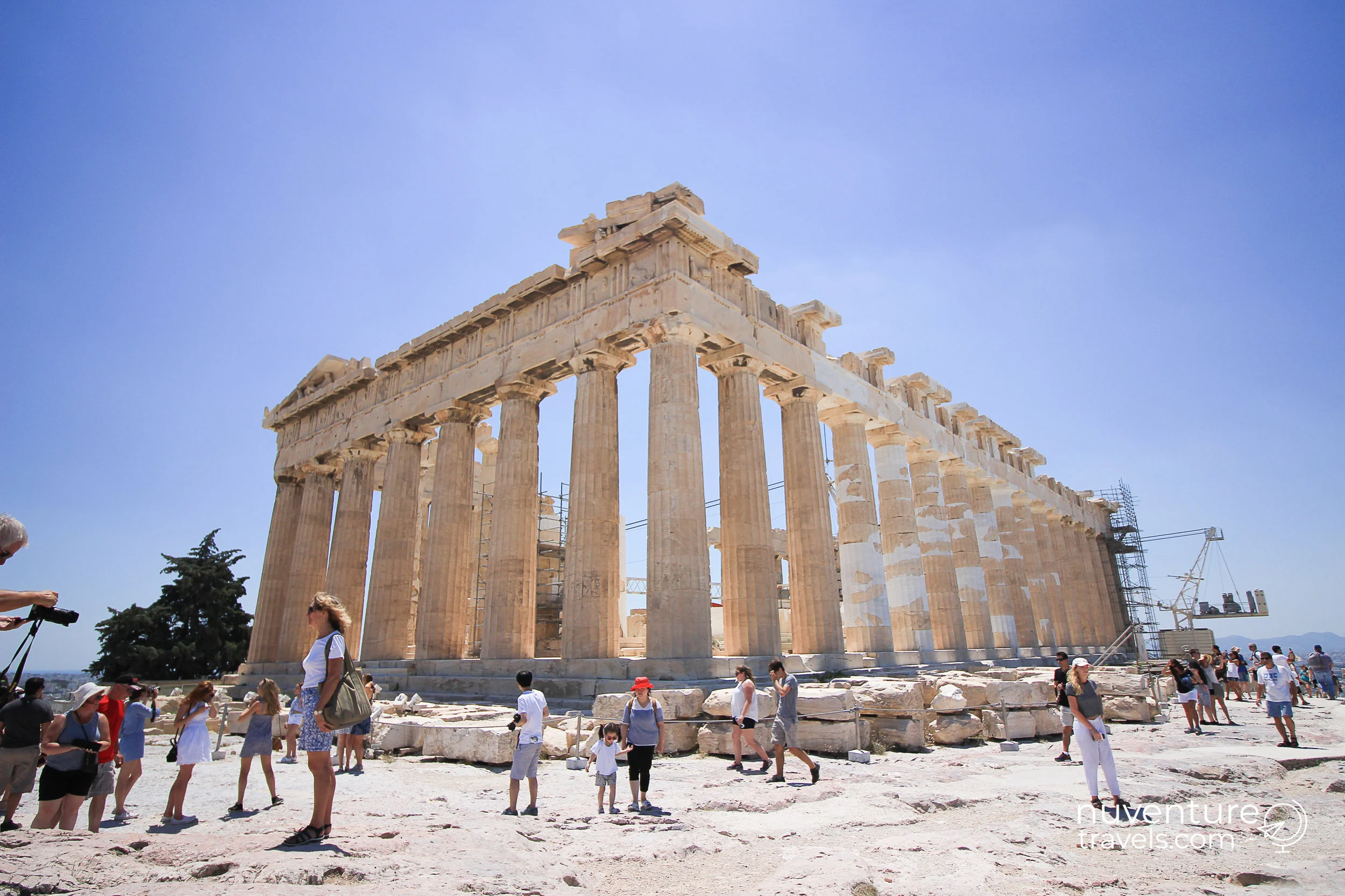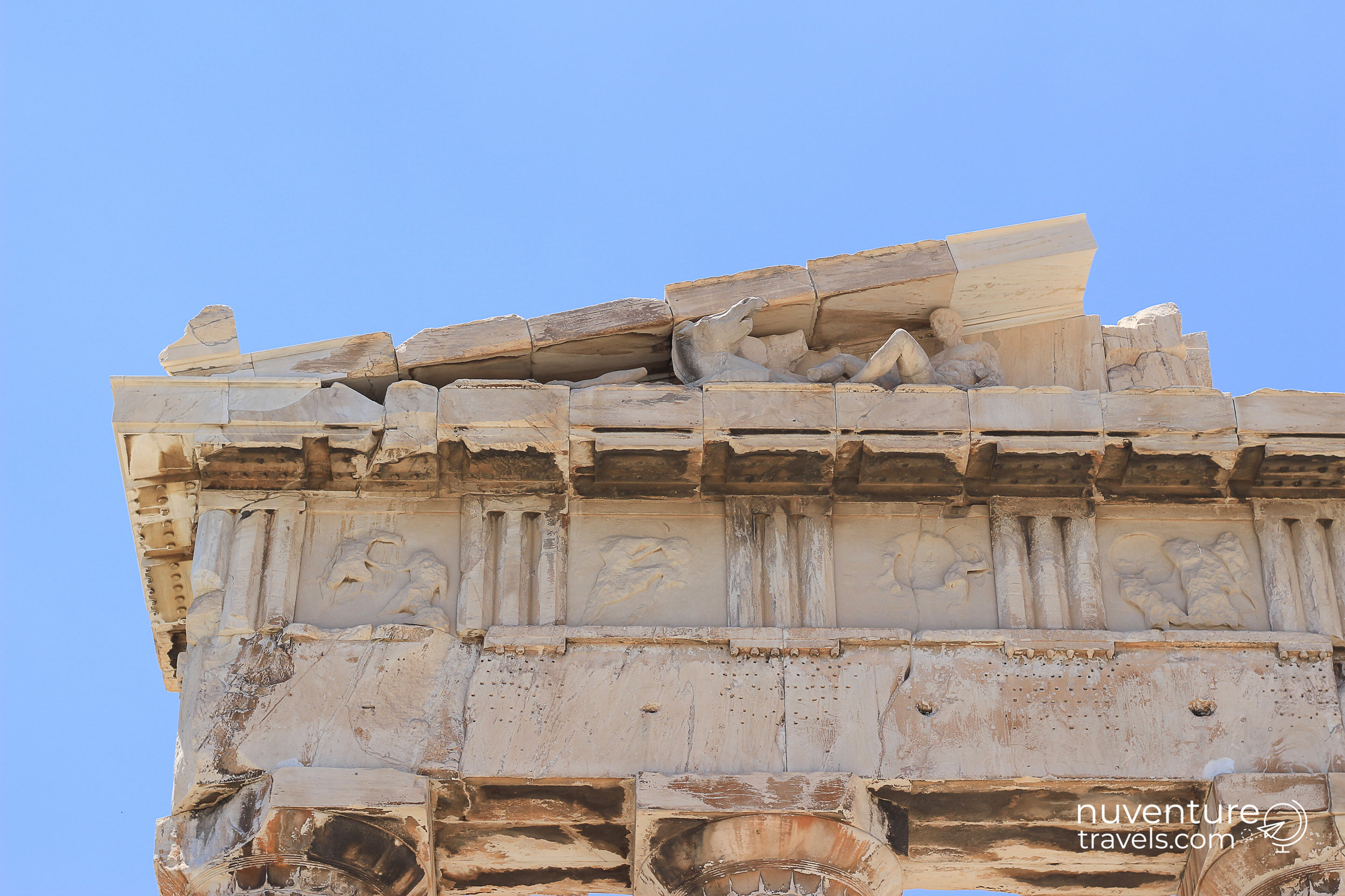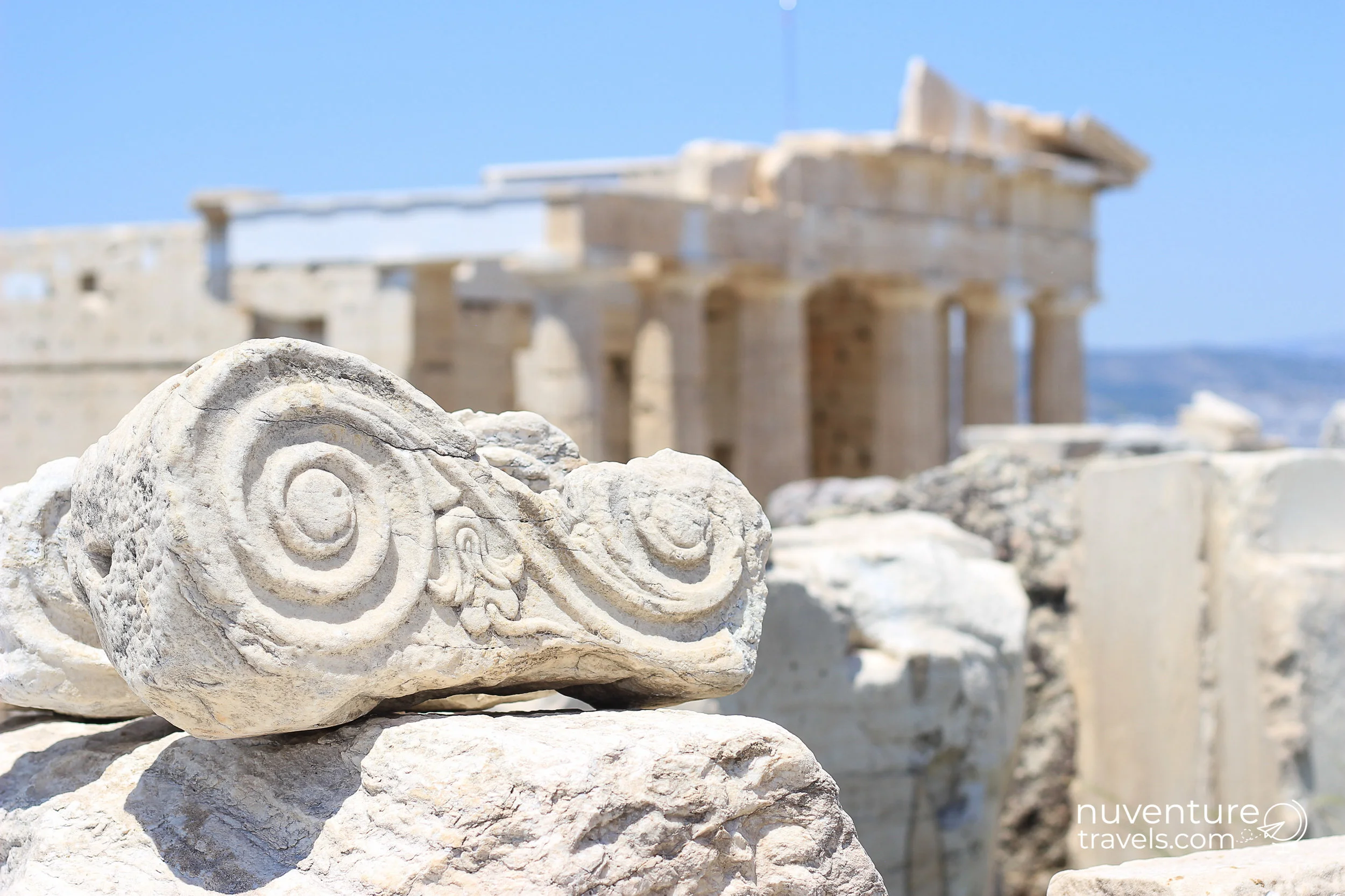Traveling to Athens, Greece was an incredible experience. Here are ten fun facts I learned about Acropolis and the Parthenon I'm pumped to share with you.
If you're on your way, here are eight tips I wish I'd known before visiting and a packing list to make sure you're ready for your visit:)
10 Fun Facts about the Acropolis & Parthenon in Athens
1. It's over 2,460 years old!
How old is the Parthenon? The history books say it started being built in 447 BC.
2. Acropolis is the area the Parthenon sits on.
What's the difference between Acropolis and the Parthenon? The Acropolis is the high hill in Athens that the Parthenon, an old temple, sits on. I originally thought they were different ancient structures, but I was incorrect. Acropolis is the hill and the Parthenon is the ancient structure.
3. The Parthenon has been a temple, a church, and a mosque throughout it's lifetime.
What is the Parthenon? The Parthenon's been fought over during the centuries by different religions. It started out as a temple dedicated to the Greek goddess Athena. Then, it was taken over by Christians and converted into a church, then it was taken over by the Turks and transitioned to a mosque with a minaret erected over it.
4. The Parthenon was blown up.
In the late 1600's, the Venetians and Turks were fighting over Athens. Acropolis was used as a military point because of it's high position. There were explosives stored in the Parthenon that went off and blew up the interior of the Parthenon.
5. The rock on Acropolis is slippery!
The biggest shocker to me as I walked around the structures on Acropolis, is the rocky ground is so slippery! It made me realize how much foot traffic over the centuries has smoothed down the ground making it slick to walk on. I recommend wearing shoes with good traction when you visit. Here's a packing list I recommend and some more tips before you go.
6. It cost the equivalent of 469 war ships to build the Parthenon!
How much did it cost to build the Parthenon? The columns are made of marble and the base is made of limestone. Ancient-greece.org says, "The Parthenon construction cost the Athenian treasury 469 silver talents. While it is almost impossible to create a modern equivalent for this amount of money, it might be useful to look at some facts. One talent was the cost to build one trireme, the most advanced warship of the era."
7. Hand carved statues line the Parthenon above the columns.
What are the carvings on the Parthenon? The Parthenon was built as a temple for the Goddess Athena. Each side of the Parthenon shares a story with hand carved statues. One side shows a battle between gods and giants. Another shows Greeks and centaurs. Other areas show Athena at birth, fighting Poseidon for Athens, and Greeks parading for Athena.
8. The carvings were carried away and shipwrecked!
In the early 1800's a British nobleman, Lord Elgin, convinced the Turks to let him take some of the carvings from the Parthenon to England. One of the boats carrying the carvings sunk and for two years many of the carvings were stuck on the ocean floor. The carvings are also known as Elgin Marbles.
9. Carvings are still scattered abroad.
Original carvings from the Parthenon are still scattered abroad in England, France, Denmark, and of course, Athens, Greece. You can see original carvings at the British Museum in London, the Louvre in Paris, and the National Museum of Denmark in Copenhagen.
10. Greece wants their marbles back.
The carvings and statues are also known as the Elgin Marbles. Greece has been trying to get the Parthenon's marbles back for 150 years with no success yet.













